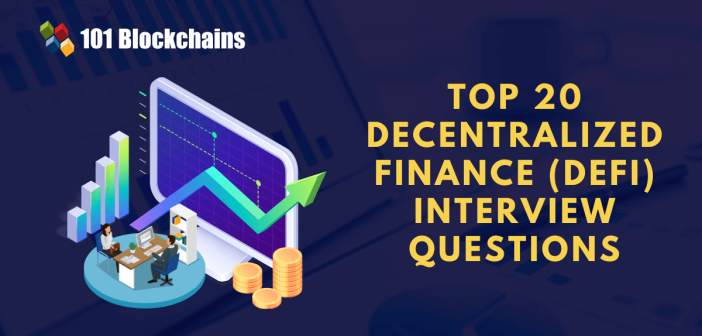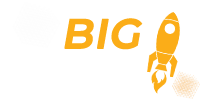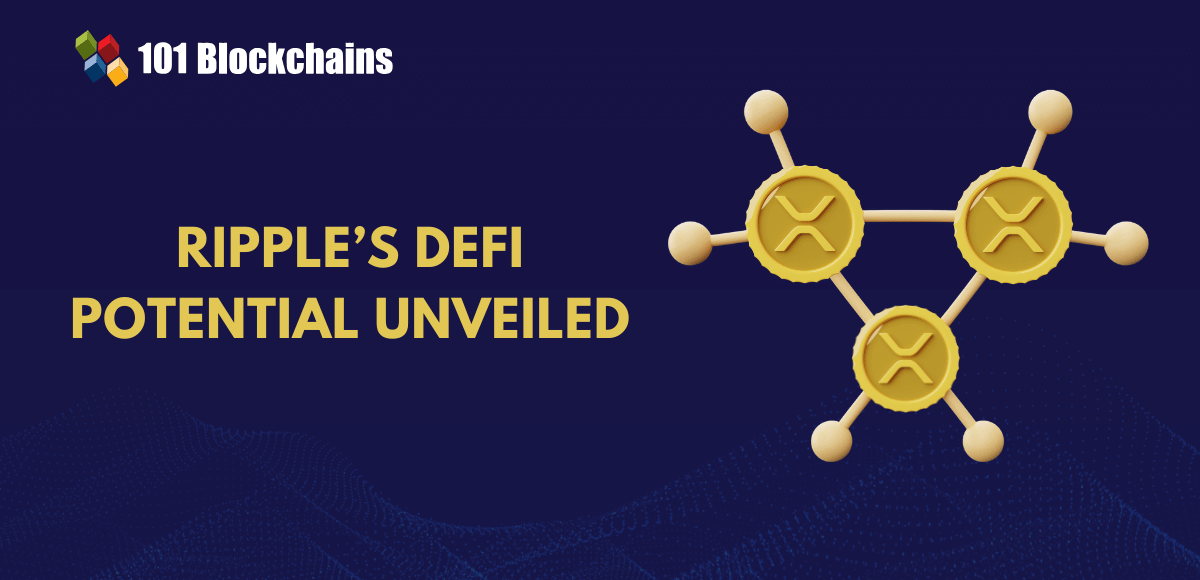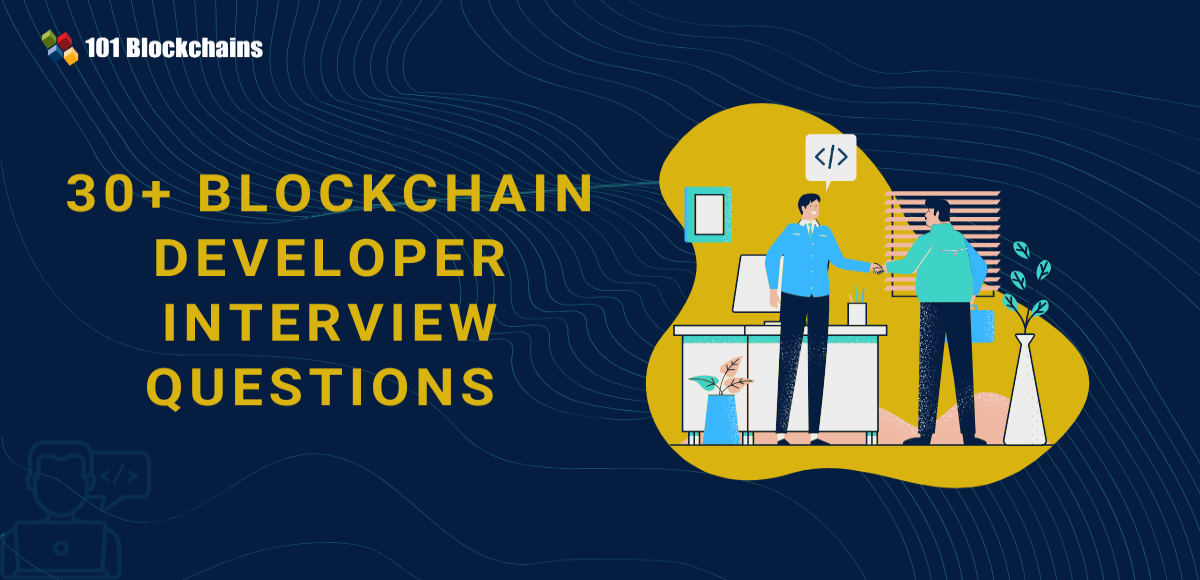Learn how blockchain truly works, master key definitions, and uncover what makes smart contracts so "smart." Dive into the fundamentals, gain valuable insights, and start your blockchain journey today!

- Decentralized Finance
Diego Geroni
- on June 23, 2021
Top Decentralized Finance (DeFi) Interview Questions
reparing for a DeFi interview? Check out the top DeFi interview questions and get ready to ace the interview!
Information exchange is one of the critical aspects of the modern business environment. Enterprises want to have better control and security in their business processes while customers are looking forward to opportunities for transparency. This is one of the reasons for which customers are looking to decentralized finance as a trustworthy alternative. DeFi has all the right ingredients to disrupt and transform the financial services sector comprehensively.
As a result, many enterprises turn to DeFi solutions and create demand for DeFi expertise. Therefore, the search for DeFi interview questions has witnessed an upward trend in recent times. Interview questions related to DeFi could help you clarify fundamental knowledge on decentralized finance. In addition, you can also develop confidence in your approach to responding to interview questions on decentralized finance.
Want to learn and understand the scope and purpose of DeFi? Enroll Now in Introduction to DeFi- Decentralized Finance Course
Top DeFi Interview Questions
When you are trying to look for the most probable DeFi questions to ask potential candidates, it is important to start with the top options. The top interview questions pertaining to the DeFi space can give you an idea of the general questions to expect. These questions are the top choices for interviewers to test the knowledge of candidates about DeFi fundamentals.
Candidates should keep an eye out for the best interview questions related to decentralized finance. The best questions on DeFi could serve as the crucial differentiators for the success and failure of candidates. The best DeFi interview questions have the element of relevance, thereby demanding precision in answering them. Here are some of the top DeFi interview questions.
1. What is DeFi?
The first entry among the top DeFi interview questions would obviously point towards its definition. Decentralized finance is actually a financial ecosystem developed over the Ethereum blockchain network with various protocols and platforms. DeFi helps in easily moving around cryptocurrency tokens. At the same time, it also helps in trading, lending, and borrowing cryptocurrency tokens.
Learn the fundamentals of Decentralized Finance (DeFi) with DeFi Flashcards
2. What are the important benefits of DeFi?
The primary objective of DeFi focuses on resolving the issues evident in traditional finance. Traditional finance depends on intermediaries such as banks. However, DeFi applications rely on code for specifying the resolution of any potential dispute. Subsequently, users have the ability to maintain comprehensive control over their funds. This can help in reducing costs related to use of financial services products to ensure a frictionless financial system.
The deployment of DeFi on blockchain takes away any specific point of failure, and data can be spread easily across various nodes. So, each node has copies of transactions carried out on the network. Therefore, it is difficult to impose censorship and a possible shutdown of service. The most significant benefit of DeFi points out to the improved accessibility of financial services for a broader audience.
3. How do DeFi applications work?
Another top mention among DeFi questions to ask in an interview definitely points out that it’s working. DeFi works through the development of dApps on a blockchain network like Ethereum and using smart contracts for automation. By using the two facets, DeFi applications could easily accommodate various financial services on a specific network. Presently, there are many notable examples of dApps tailored for lending automated loans known as crypto loans. Many apps related to DeFi also include the creation of stablecoins, investment options, asset exchange, and others available presently.
Want to explore in-depth about DeFi protocol and its use cases? Join Standard/Premium Plan and get free access to Decentralized Finance (Defi) Course- Intermediate Level Now!
4. What is the scope for DeFi in 2021?
Most of the interview questions on decentralized finance will also draw your attention to the existing state of DeFi. Decentralized finance has always been focused on one particular aspect, i.e., the elimination of middlemen from financial transactions. With the growing demand for digital transactions and cashless economies, DeFi guarantees solutions that can enable the following services,
- Decentralized cryptocurrency exchange markets
- Instantaneous peer-to-peer payments
- Solutions for borrowing or lending digital coins
- Solutions for estimating asset variations and arriving on relevant insights
- Use of tokenization for advanced asset management
5. How is DeFi useful in borrowing and lending?
The open lending protocols in the DeFi ecosystem serve as the unique aspect supporting borrowing and lending applications. The explicit advantages of open and decentralized apparatus for borrowing and lending could outshine the conventional credit systems. Users can get benefits of instant transaction settlement, potential standardization, and relief from credit checks. The assurance of public blockchains and cryptographic verification reduces the trust required for lending services.
Build your identity as a certified blockchain expert with 101 Blockchains’ Blockchain Certifications designed to provide enhanced career prospects.
6. How is DeFi applied for decentralized marketplaces?
The application of DeFi in the creation of decentralized marketplaces offers considerable scope for innovation. Decentralized exchanges or DEXs can enable users to trade digital assets without any trusted intermediary for holding their funds. All the trade activity happens directly between user wallets through smart contracts. Another example of applying DeFi in decentralized marketplaces refers to the creation of security token issuance platforms.
7. What is the importance of smart contracts in DeFi?
The topic of smart contracts would come up frequently in most of the best DeFi interview questions you might come across. Many of the existing as well as potential applications of DeFi focuses on the creation and deployment of smart contracts. A smart contract has the unique ability to enforce the terms of a contract through computer code.
As a result, smart contracts can help in trustworthy execution and automation of various business processes which need manual supervision. Therefore, smart contracts are important in DeFi for faster and easier transactions with lower risks for involved parties.
Curious to understand the complete smart contract development lifecycle? Join Standard/Premium Plan and get free access to the Smart Contracts Development Course Now!
8. What is a DeFi wallet?
A DeFi wallet, as the name implies, helps users in storing their own funds without having to depend on a third party for holding their assets. They are basically helpful for sending and receiving cryptocurrency assets also. Users could find DeFi wallets in different forms and shapes, although with four highly popular options. The notable options include a browser extension, a mobile app, a web wallet, or a hardware wallet.
9. What are the key components of DeFi wallets?
The DeFi wallets you can find commonly now are primarily web3 wallets, and most of them have various similar traits. Some of the key components related to DeFi wallets include accessibility and compatibility. At the same time, they are also non-custodial and key-based. The non-custodial trait implies that users could send and transfer funds with the assurance that only they can access the funds. Key-based feature refers to the use of a unique key-pair for accessing DeFi wallets.
10. What is a DeFi token?
DeFi tokens are also one of the common entries when it comes to important DeFi questions to ask in an interview. DeFi applications run on blockchain networks and use native crypto tokens for facilitating transactions on their application network. For example, users can pay transaction processing fees for borrowing loans on a DeFi platform with its native DeFi token. DeFi token is an ideal option for earning interest, obtaining loans alongside trading digital assets with ease.
11. What do you know about a DAO?
DAO refers to a Distributed Autonomous Organization. It is basically an organization that runs on rules embedded in a computer program. The computer program has exclusive transparency and control privileges of organization members. The DAO governance does not change under the influence of a central government. A blockchain takes care of the financial transaction record and program rules for a DAO.
Excited to develop fluent knowledge of the DAO ecosystem? Enroll Now in DAO Fundamentals Course!
12. What is DEX?
DEX refers to Decentralized Exchange, one of the most promising applications of DeFi. Basically, in a decentralized cryptocurrency exchange, a DEX could operate without a physical location. It works as a peer-to-peer network running on smart contracts that enable users to trade directly with each other. In addition, decentralized exchanges don’t have to comply with strict rules and regulations like in the case of centralized exchanges.
13. What is the ERC-20 token?
ERC-20 token is one of the most important Ethereum tokens, which actually started off as a technical standard for all smart contracts implemented on Ethereum blockchain. ERC-20 provides definitions for six unique functions to ensure benefits for other tokens in the Ethereum space. The unique functions primarily focus on the fundamental functionality aspects too.
Want to learn the basic and advanced concepts of Ethereum? Enroll in our Ethereum Development Fundamentals Course right away!
14. What is a Governance Token?
Governance token is also one of the important topics for top DeFi interview questions. It is actually a token that can support the governance of operations alongside influencing the direction of a project, coin, or token under the control of the concerned Governance Token. The direct price appreciation of renowned governance tokens can help in reaping benefits through holding governance tokens. In addition, they are also associated with other specific benefits allocated for governance token holders only.
15. Who is a Lending Provider?
Another notable topic for interview questions on decentralized finance would obviously bring the name of the Lending Provider. Lending Provider refers to an individual or group offering cryptocurrency capital in return for a share of rewards and incentives obtained by lending out cryptocurrency coins while offering liquidity. Lending providers can extend loans to cryptocurrency networks, traders, CIIs, investors, DAOs, and exchanges for exceptional opportunities for arbitrage and business.
Want to know learn more about DeFi applications? Check out more from our Decentralized Finance Applications guide now!
16. What is liquidity mining?
One of the advanced interview questions on decentralized finance will obviously bring you face to face with liquidity mining. It is a highly energy-efficient variant of cryptocurrency mining that offers support for processes and transactions on blockchain networks without expensive investments in hardware or application-specific equipment.
17. What is a Multisig Wallet?
A multisig wallet is actually a cryptocurrency wallet that could control access and modifications to one or multiple smart contracts. Community-governed projects such as DAO generally require multiple signers for approving a transaction before its execution. Multisig wallets are generally deployed as 6 of 9 wallets. In this case, 6 out of 9 community wallet signers should agree on signing a transaction before the implementation of a smart contract.
18. What do you mean by staking?
Staking is basically the process of depositing a cryptocurrency token or coin in a yield farming project or protocol. The individuals are putting up the stake aim at obtaining interest on their deposits in such yield farming projects as well as offerings. DeFi can help in ensuring better rewards, albeit with slightly higher risks calling for earlier investor participation.
19. Can you define TVL?
TVL is also an important topic for DeFi questions to ask in an interview. Total Value Locked in a smart contract or set of smart contracts which you can deploy or store at one or multiple markets or exchanges. TVL serves as a promising indicator of investor deposits. In simple words, it can be defined as the dollar value of all coins or tokens combined and locked in a yield farming program, lending program, platform, insurance liquidity pool, and protocol.
20. Do you know about yield farming?
Yield farming is defined as the process of manual or automatic lending or arbitrage for digital assets to offer an ROI for depositing or lending digital assets in DeFi or CeFi. Yield farming is a reliable instrument for achieving additional income streams without depending on improvement of potential growth in value of underlying assets. DeFi options are likely to offer better yields in comparison to CeFi alternatives.
Catch up on the latest trends in decentralized finance (DeFi) and its connection to crypto with DeFi Skill Path
Bottom Line
On a final note, it is quite clear that the popular DeFi interview questions largely deal with the working of decentralized finance. DeFi is gaining considerable impetus in recent times. As of February 2020, the overall TVL locked in the DeFi sector was well above $1 billion. By the end of the year, the value had crossed the $13 billion mark with a staggering 2000% growth rate.
These numbers showcase the extremely favorable potential associated with DeFi and the career opportunities with it. DeFi has the capability to introduce a completely new financial ecosystem for the world. If you want to capitalize on the opportunity and clear your interview on the first attempt, then start learning more about DeFi now. You can also enroll in the DeFi course to broaden your knowledge of DeFi.
*Disclaimer: The article should not be taken as, and is not intended to provide any investment advice. Claims made in this article do not constitute investment advice and should not be taken as such. 101 Blockchains shall not be responsible for any loss sustained by any person who relies on this article. Do your own research!



![30+ Best Decentralized Finance Applications [Updated] best decentralized finance (DeFi) applications](https://101blockchains.com/wp-content/uploads/2020/10/decentralized-finance-applications.png)

